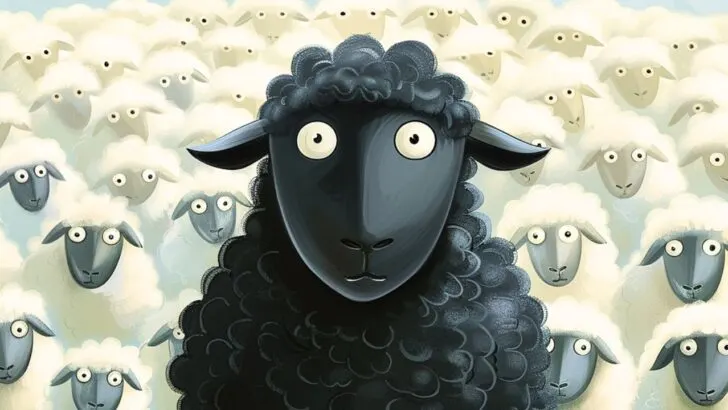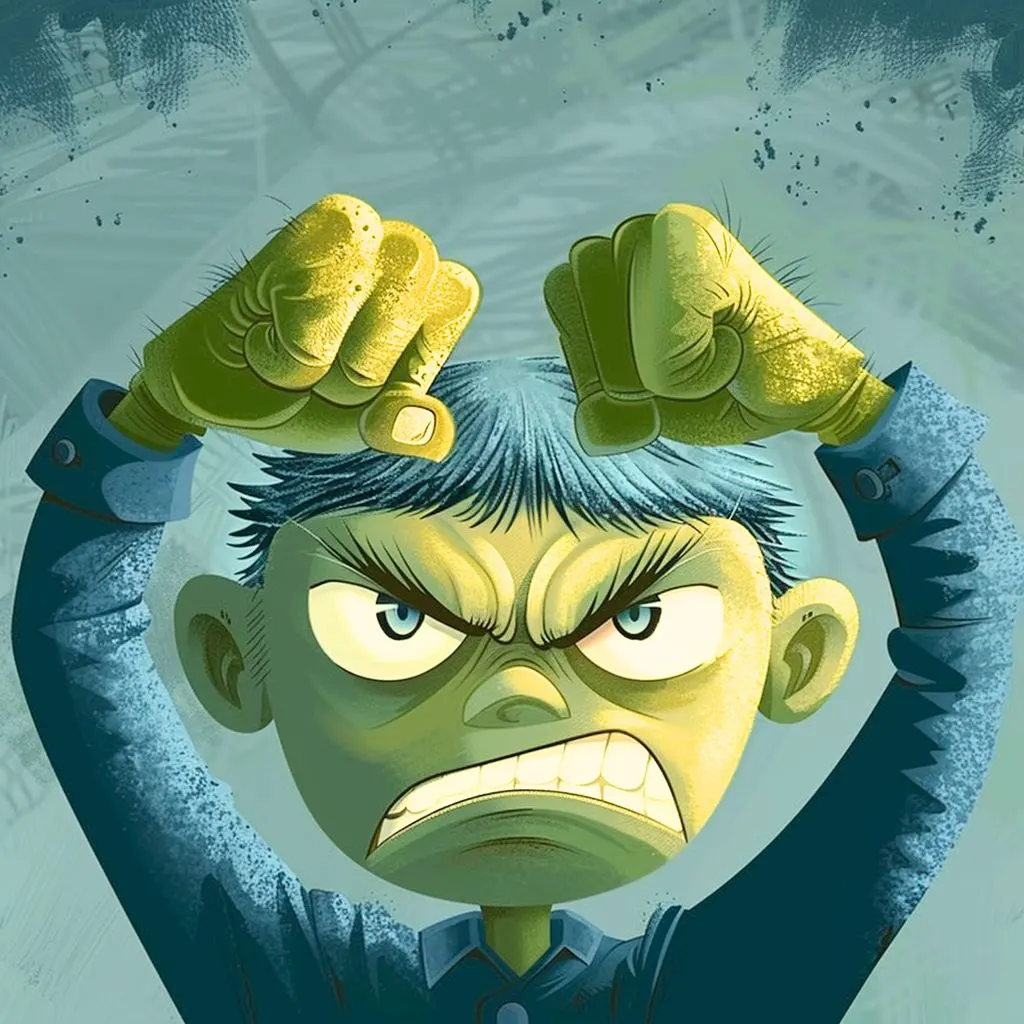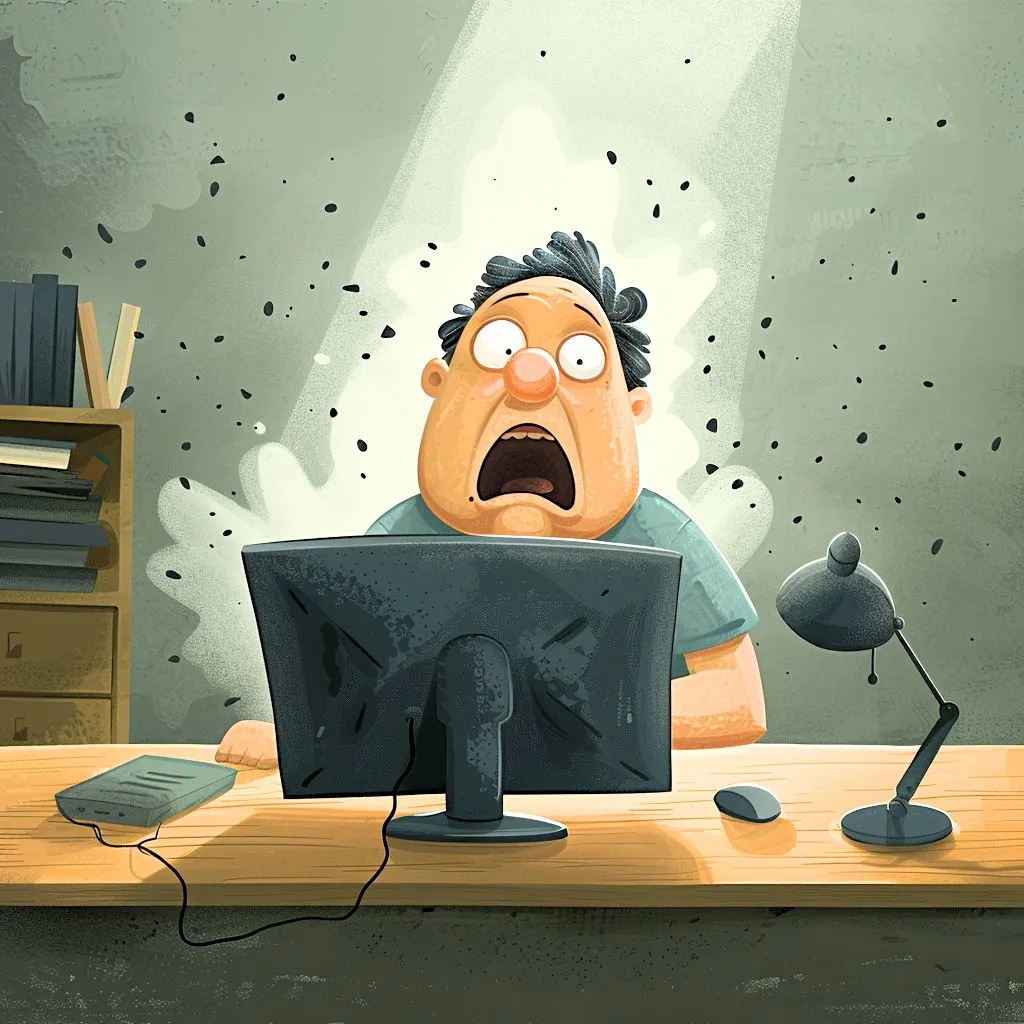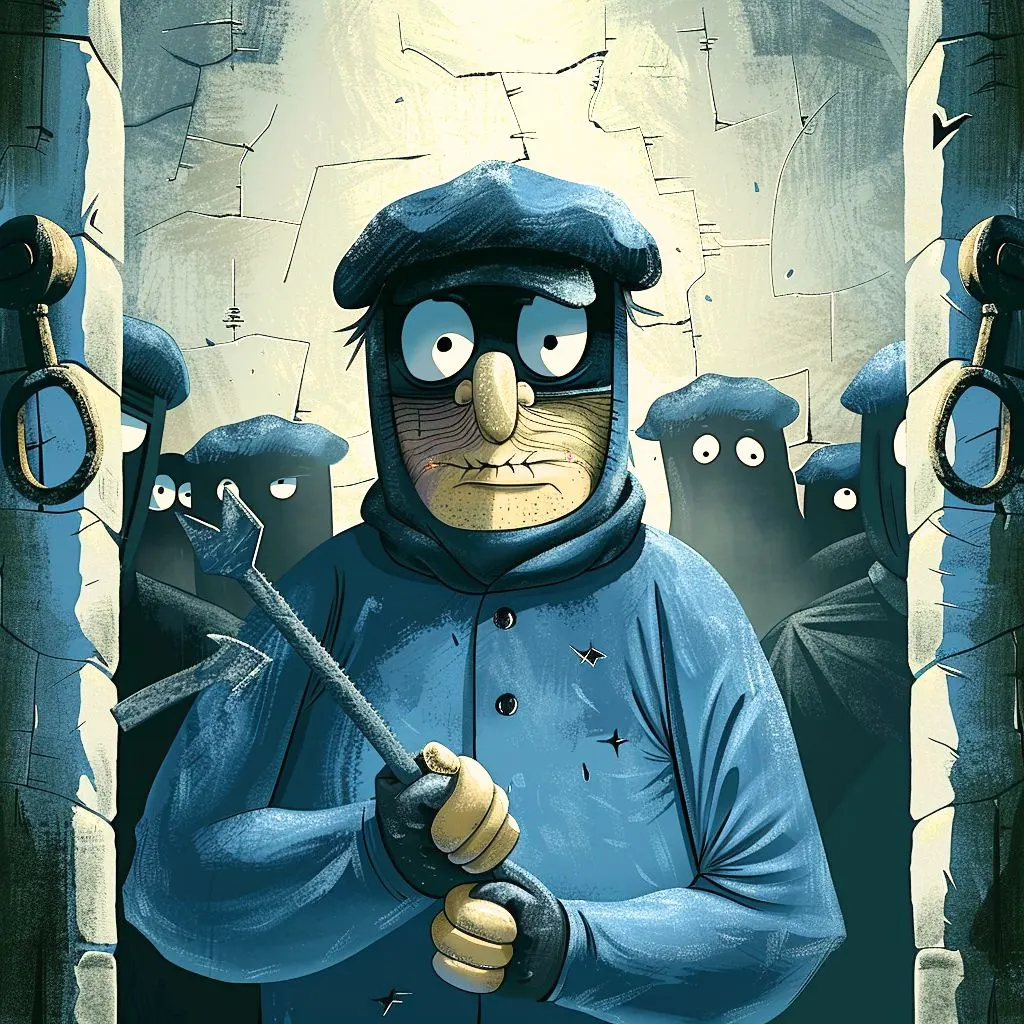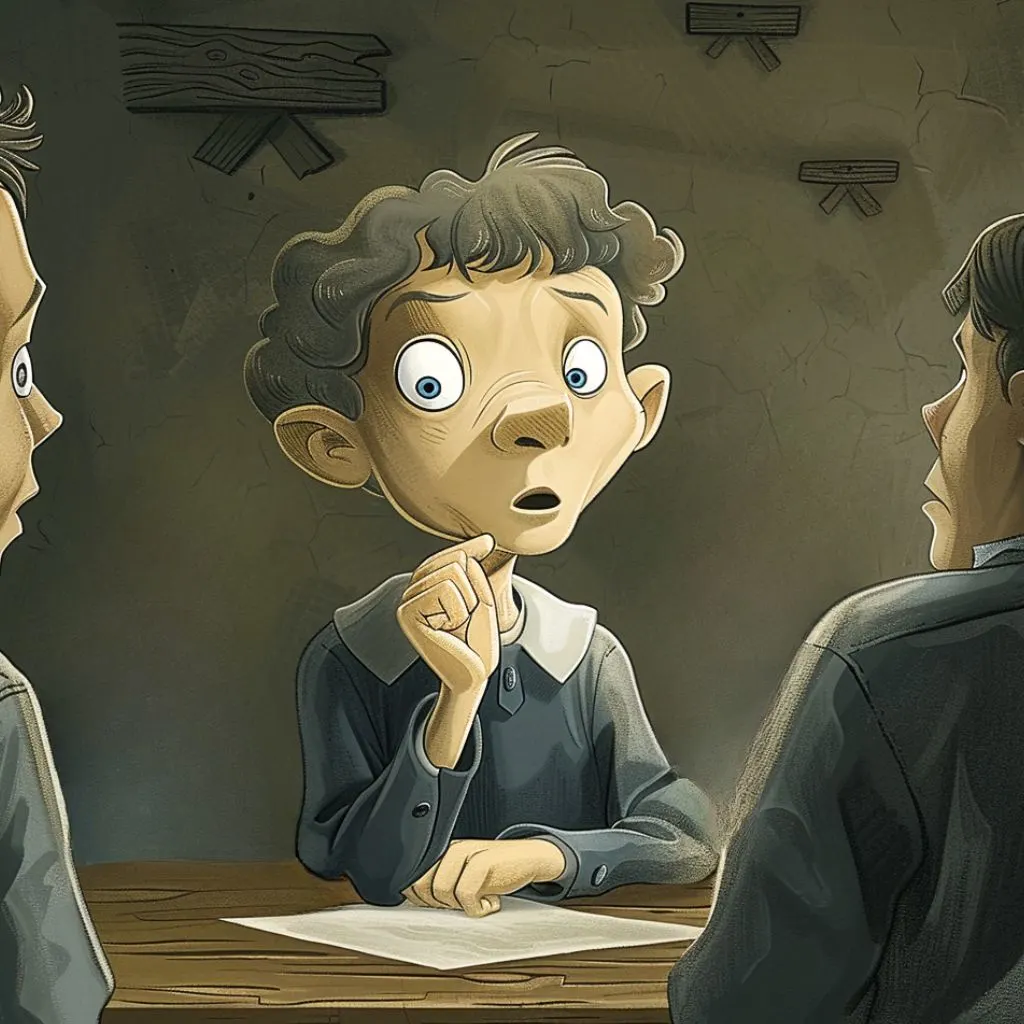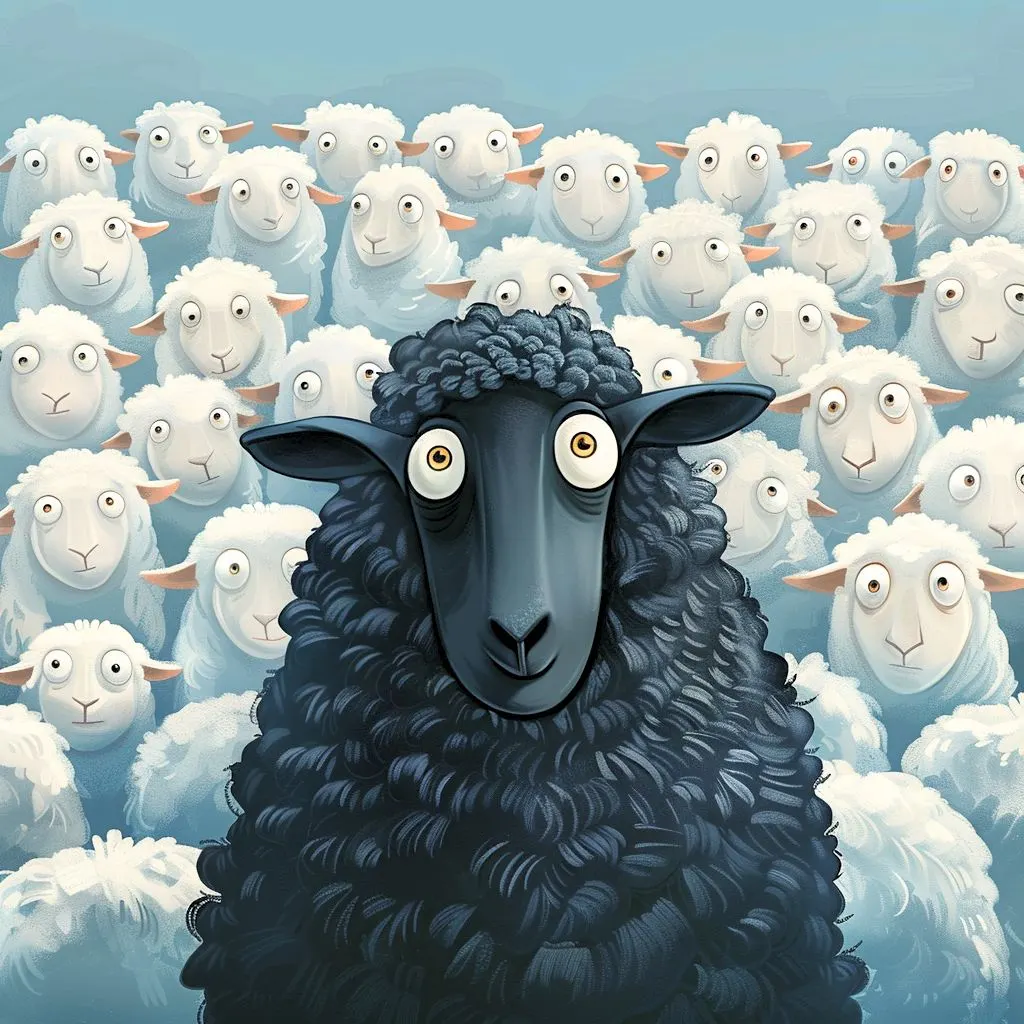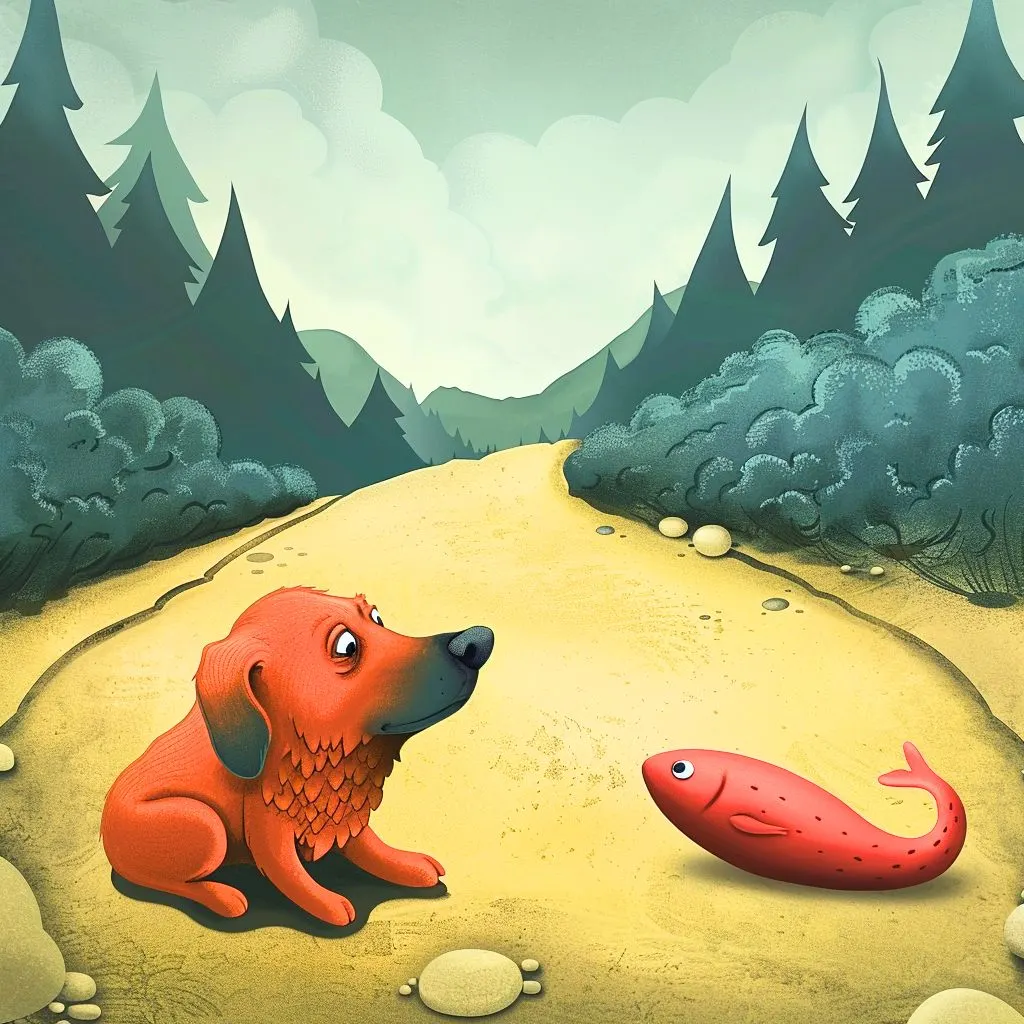Ever wonder how colors can spice up your conversations?
Enter the world of color idioms! These vibrant expressions not only add flair to your speech but also carry fascinating stories and vivid imagery.
From being “green with envy” to having a “golden opportunity,” these idioms are as colorful as they are fun.
Ready to brighten up your day with some linguistic flair?
Let’s dive into these 14 colorful idioms and learn how to use them to make your chats more lively and engaging!
1. Green with Envy
Picture someone turning a vibrant shade of green with jealousy—yep, that’s “Green with Envy!”
“Green with Envy” means feeling extremely jealous or envious of someone else. It’s something you say when someone covets another person’s success, possessions, or happiness.
This idiom humorously compares a person’s jealous feelings to the color green, often associated with sickness or envy. It comes from ancient beliefs that jealousy caused an excess of bile, turning the skin greenish.
Example 1: When Sarah saw her friend’s new car, she was green with envy.
Example 2: He was green with envy when he found out his colleague got the promotion.
2. Tickled Pink
Imagine someone laughing so hard that their face turns pink—yep, that’s “Tickled Pink!”
“Tickled Pink” means being very pleased or delighted about something. It’s something you say when you want to express extreme happiness or amusement.
This idiom humorously describes the physical reaction of blushing or turning pink when something brings great joy.
Example 1: She was tickled pink when she received the surprise gift.
Example 2: The kids were tickled pink by the magician’s performance.
3. Out of the Blue
Picture a clear blue sky suddenly interrupted by something unexpected—yep, that’s “Out of the Blue!”
“Out of the Blue” means something happening suddenly and unexpectedly. It’s used when an event occurs without any warning.
This idiom draws from the idea of a surprise appearing in an otherwise calm and predictable setting.
Example 1: The news of his resignation came out of the blue.
Example 2: She called me out of the blue after years of no contact.
4. Red Tape
Imagine navigating through endless rolls of red tape just to get something done—yep, that’s “Red Tape!”
“Red Tape” refers to excessive bureaucracy or rigid conformity to rules that cause delay or obstruction. It’s used when dealing with complicated administrative procedures.
This idiom originated from the 16th century, when official documents were bound with red tape.
Example 1: The project was delayed due to all the red tape involved.
Example 2: Getting a visa can involve a lot of red tape.
5. Caught Red-Handed
Picture someone with red paint all over their hands, caught in the act—yep, that’s “Caught Red-Handed!”
“Caught Red-Handed” means being caught in the act of doing something wrong. It’s used when someone is discovered in the midst of committing a crime or misdeed.
This idiom originated from the idea of having blood on one’s hands after a murder or poaching.
Example 1: He was caught red-handed stealing cookies from the jar.
Example 2: The thief was caught red-handed by the security cameras.
6. White Lie
Think of a harmless fib told to avoid hurting someone’s feelings—yep, that’s a “White Lie!”
A “White Lie” is a small, harmless lie told to avoid hurting someone or to evade minor trouble. It’s used when a falsehood is considered to be inconsequential.
This idiom emphasizes the innocuous nature of the lie, suggesting purity or harmlessness.
Example 1: She told a white lie about liking the gift to avoid offending him.
Example 2: I told a white lie when I said I was busy to avoid the awkward event.
7. Black Sheep
Imagine a flock of white sheep with one black sheep standing out—yep, that’s the “Black Sheep!”
A “Black Sheep” is someone who is considered odd or disreputable within a group. It’s used when referring to a person who doesn’t fit in with the rest of their family or community.
This idiom highlights the contrast and how the person stands out negatively.
Example 1: He’s the black sheep of the family, always getting into trouble.
Example 2: In a company of rule-followers, she was the black sheep with her unconventional methods.
8. Golden Opportunity
Picture an opportunity so precious it shines like gold—yep, that’s a “Golden Opportunity!”
A “Golden Opportunity” is a very good chance for success that is unlikely to be repeated. It’s used when a rare and valuable chance arises.
This idiom equates the opportunity with the value and rarity of gold.
Example 1: Getting that internship was a golden opportunity for her career.
Example 2: The job offer was a golden opportunity he couldn’t pass up.
9. Feeling Blue
Think of someone looking down and sad—yep, that’s “Feeling Blue!”
“Feeling Blue” means feeling sad or depressed. It’s used when someone is in a low mood.
This idiom possibly originates from old sailing terms, where ships would fly blue flags when the captain or crew were in mourning.
Example 1: She’s been feeling blue since her best friend moved away.
Example 2: After hearing the bad news, he couldn’t help but feel blue.
10. In the Pink
Imagine someone glowing with health and happiness—yep, that’s “In the Pink!”
“In the Pink” means being in good health. It’s used to describe someone who is feeling great physically and mentally.
This idiom comes from the 16th-century phrase “in the pink of condition,” referring to the peak of health and condition.
Example 1: After the vacation, she was in the pink and ready to tackle her work.
Example 2: He’s in the pink after recovering from his illness.
11. Green Thumb
Imagine someone with a magical ability to grow plants effortlessly—yep, that’s a “Green Thumb!”
A “Green Thumb” means having a talent for gardening. It’s used to describe someone who can make anything grow well.
This idiom likely comes from the idea that a gardener’s thumb gets green from handling plants.
Example 1: My grandmother has a green thumb; her garden is always blooming.
Example 2: If you need gardening tips, ask Jane—she has a real green thumb.
12. Grey Area
Picture a space that’s neither black nor white but somewhere in between—yep, that’s a “Grey Area!”
A “Grey Area” refers to an unclear or undefined situation. It’s used when something isn’t easily categorized.
This idiom highlights the ambiguity and complexity of certain situations.
Example 1: The law regarding drone usage is still a grey area.
Example 2: There’s a grey area between what’s acceptable and what’s not in social media.
13. Red Herring
Think of a misleading clue in a detective story—yep, that’s a “Red Herring!”
A “Red Herring” is something that misleads or distracts from the main issue. It’s used in arguments or discussions to divert attention.
This idiom comes from the practice of using a smoked herring to distract hounds from a trail.
Example 1: The question about her personal life was a red herring to avoid the main topic.
Example 2: The plot twist was just a red herring to keep the readers guessing.
14. White Elephant
Think of a costly gift that’s more trouble than it’s worth—yep, that’s a “White Elephant!”
A “White Elephant” is a possession that is expensive but useless. It’s used to describe something that’s a burden due to its cost and maintenance.
This idiom comes from the ancient practice of giving rare albino elephants as gifts, which were costly to keep.
Example 1: The old mansion is a white elephant; it costs a fortune to maintain.
Example 2: That sculpture is beautiful but it’s a white elephant in terms of upkeep.

Hey fellow Linguaholics! It’s me, Marcel. I am the proud owner of linguaholic.com. Languages have always been my passion and I have studied Linguistics, Computational Linguistics and Sinology at the University of Zurich. It is my utmost pleasure to share with all of you guys what I know about languages and linguistics in general.

